Lemon Cake
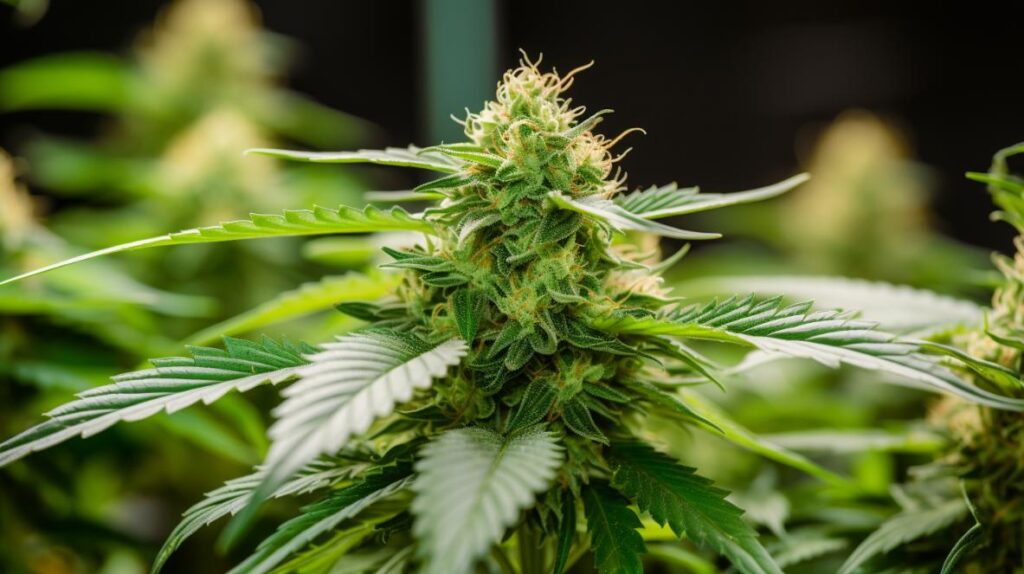
The Lemon Cake strain, a sativa-dominant hybrid, is the progeny of Lemon Skunk and Cheese, two strains known for their distinctive flavor profiles. Lemon Cake inherits a sharp citrus scent complemented by a robust Cheese aroma, creating an olfactory experience as complex as its genetic lineage.
With THC levels that can be quite high, it delivers an invigorating cerebral buzz that helps to elevate mood and energy, making it a popular choice among those seeking relief from anxiety, stress, and depressive symptoms. Despite its many benefits, users should be cautious of potential side effects such as dizziness and dry mouth.
It typically requires 9-10 weeks of flowering before harvest, and cultivators prize Lemon Cake for its therapeutic potential and unique sensory properties.
Genetic Lineage
The genetic lineage of the Lemon Cake strain is a robust blend of Lemon OG and Jesus OG genetics, resulting in its distinctive taste and aromatic profile. Lemon OG itself is a crossbreed between the zesty Lemon Skunk and an OG Kush variant, providing a sharp, citrus-forward nose and a complex terpene palette.
The Lemon Skunk component is renowned for its invigorating lemon zest essence that imbues Lemon Cake with its signature citrusy punch. Complementing this tangy vibrancy, Jesus OG contributes a terpene profile rich in earthy and musky tones, thanks to its own lineage that includes the genetics of Hell’s OG and Jack the Ripper, two strains revered for their bold, penetrating aromas and robust growth characteristics.
This amalgamation of Jesus OG’s pungent, herbal bouquet with the bright, sour notes of Lemon Skunk establishes Lemon Cake as a strain with a sophisticated, layered flavor profile that is both luxurious and nuanced. Connoisseurs will appreciate the intricate dance of sweet vanilla undertones against the backdrop of a more dominant bright citrus symphony.
In essence, Lemon Cake’s lineage is a testament to the artful selection of parent strains to achieve a confluence of olfactory and gustatory excellence.
THC/CBD Content
Harmony between Lemon Cake’s genetic lineage and its cannabinoid profile is exemplified by its moderate THC levels and minimal CBD content, which together orchestrate a balanced and focused experience for users.
As a sativa-dominant hybrid, the Lemon Cake strain boasts a THC concentration typically ranging from 19-20%, hitting the sweet spot for those desiring an elevation in mood without overwhelming potency. This particular range of THC is adept at stimulating cerebral activity, enhancing creativity, and providing a euphoric uplift that is both energetic and clarifying.
The low CBD content, hovering around 1%, complements the experience by subtly modulating the psychoactive effects of THC, thereby reducing the likelihood of overstimulation while still maintaining the strain’s therapeutic potential. The trace amounts of CBD in Lemon Cake strain may not be sufficient for those seeking a high-CBD remedy, yet they are enough to synergize with the THC component to combat stress effectively and stimulate a healthy appetite.
The meticulous balance of cannabinoids in Lemon Cake is reflective of a connoisseur’s appreciation for a strain that can cater to both recreational enjoyment and functional, daily relief from symptoms like appetite loss, making it a versatile choice in the cannabis market.
Terpene Profile
Lemon Cake strain’s distinctive terpene profile is characterized by a combination of Beta Myrcene, Alpha Pinene, and Beta Caryophyllene, which together create its signature sweet and sour citrus aroma with vanilla accents and a spicy finish.
The prevalence of Beta Myrcene at 1.976% in the Lemon Cake OG variation imparts a robustly sweet aroma, reminiscent of tropical fruits, that enhances the strain’s olfactory appeal. This sweet note perfectly complements the Lemon Cake strain’s visually appealing green buds, which are punctuated by vibrant orange pistils.
Alpha Pinene, noted at 0.617%, introduces a refreshing piney undertone that not only adds complexity to the bouquet but also suggests a potential for alertness and memory retention, traits often appreciated by cannabis connoisseurs.
Meanwhile, the Beta Caryophyllene content, at 0.354% in Lemon Cake OG and 0.128% in Lemon Cake, contributes a subtle spiciness that rounds out the profile, imparting a musky depth to the sweet taste.
This intricate terpene tapestry is further nuanced by trace amounts of Alpha Humulene, which may introduce a subtle hop-like crispness to the flavor profile.
The technical synergy of these compounds in Lemon Cake’s terpene profile is a testament to the strain’s sophisticated sensory experience.
Effects
Experiencing the Lemon Cake strain typically results in a burst of cerebral energy that enhances mental clarity and focus. Connoisseurs of this sativa-dominant hybrid often report a symphony of effects that invigorate both mind and body. The effects of Lemon Cake go beyond the ordinary, offering not only a stimulating experience but also a nuanced elevation of the senses. Its lineage, reminiscent of the Lemon Pound Cake, imbues users with a zestful verve ideal for creative endeavors or social gatherings.
Onset begins with a rush of euphoria, which can inspire a plethora of artistic musings and an outgoing demeanor. The sweet vanilla undertones of Lemon Cake’s profile complement its lively character, providing a sensory experience that is both palatable and invigorating. As the high progresses, the body may feel a gentle relaxation without the sedative effects typical of indica strains, making Lemon Cake a choice selection for daytime use.
Below is a table summarizing the key effects of the Lemon Cake strain:
| Effect | Description | Note |
|---|---|---|
| Energy | A robust increase in vitality and alertness | Ideal for daytime use |
| Focus | Heightened concentration and mental acuity | Beneficial for tasks requiring attention |
| Mood | Uplifted spirits and sociability | May induce chattiness |
These effects collectively make Lemon Cake a premium option for those seeking to alleviate the clouds of stress or ennui without compromising on productivity or social interaction.
Medical Uses
Beyond its recreational appeal, the Lemon Cake strain is renowned among medical cannabis patients for its efficacy in alleviating a spectrum of ailments, ranging from psychological stressors to physical discomforts. With an average THC level hovering between 19-20%, Lemon Cake exhibits a robust profile conducive to therapeutic applications.
The cerebral uplift and energizing buzz it imparts are frequently utilized in the management of chronic stress and depression, delivering a buoyant respite that is both invigorating and stabilizing.
Lemon Cake’s medical uses extend to the realm of somatic relief, where its properties have been reported to significantly mitigate conditions such as nausea, appetite loss, and chronic fatigue. This cultivar’s nuanced terpene composition, characterized by limonene, is thought to synergize with its cannabinoids to enhance mood and stimulate appetite, thus presenting a dual approach to combating such afflictions.
The strain’s analgesic potential is also noteworthy, with users citing effectiveness in dulling headaches and migraines. Additionally, its potential antispasmodic qualities could offer a reprieve to those suffering from muscle spasms.
As such, Lemon Cake stands out as a versatile cannabis strain within the medicinal community, offering a multifaceted therapeutic arsenal for patients seeking solace from a variety of distressing conditions.
Flavor and Aroma
The flavor profile and aromatic bouquet of the Lemon Cake strain are intricately linked to its therapeutic benefits, offering patients a sensory indulgence that complements its medicinal properties. Connoisseurs of this strain are first greeted by a pungent citrus aroma that invigorates the olfactory senses, a testament to the Lemon Cake’s namesake. This initial fragrance is layered with a musky Cheese nuance, providing an unexpected depth to its overall scent profile.
Upon consumption, the palate is enveloped by a sweet symphony of flavors, notably the zesty tang of lemonade intermingled with the comforting essence of fresh yeast. This sweet and citrusy profile is elegantly balanced by an earthy undertone reminiscent of musty soil, adding a grounded complexity. Notes of the savory Parmesan cheese emerge subtly, akin to the nuanced finish in a gourmet dessert.
The Lemon Cake strain’s taste is redolent of a lemon cheesecake, with fruity and sweet nuances that enhance the strain’s allure. Each inhalation is a journey through a cake-like vapor, trailed by musky undertones that anchor the experience. Such a rich tapestry of flavors not only pleases the palate but also aids in promoting a sense of well-being, making Lemon Cake a strain sought after by those yearning for sweet relief in proximity.
Appearance
Lemon Cake OG’s striking appearance is characterized by its vibrant, fluorescent green buds that are interspersed with dark green and purple hues, complemented by burnt-orange pistils and a delicate dusting of white trichomes. This visually stunning strain is a feast for the eyes, often inciting curiosity about the color does Lemon Cake express in its full maturity.
The fluorescent green is the canvas upon which the deeper shades boldly play their part, creating a contrast that is as aesthetically pleasing as it is indicative of the strain’s robust genetics, likely inherited from its Lemon OG and Jesus OG lineage.
The buds themselves are often rounded and spade-shaped, indicating a meticulous cultivation process that ensures each flower reaches its potential in both appearance and potency. The coating of white trichomes is not merely a visual spectacle; it is also a telltale sign of the strain’s rich cannabinoid profile, which promises a powerful experience for the consumer.
Lemon Cake OG’s visual cues, from the bright-green base to the darker accents and vivid pistils, are a testament to its connoisseurship appeal, offering a hint of the sensory journey that lies ahead for those who indulge in its dessert-like essence.
Grow Information
Several factors must be considered when cultivating the Lemon Cake strain, a sativa-dominant hybrid known for its robust growth and aromatic presence. This particular cultivar, often associated with the delectable richness of Lemon Cheesecake and the zesty sweetness of Lemon Pound cake, requires meticulous attention to detail to achieve optimal yields and flavor profiles.
The Lemon Cake strain has a flowering period of approximately 9 to 10 weeks, which necessitates patience and careful monitoring to ensure the development of its characteristic potent terpene profile.
Cultivators must provide an environment that mimics the strain’s preferred conditions, with adequate heating systems to accommodate winter cultivation while remaining vigilant against mildew. The strain’s resilience to cooler climates makes it an excellent option for indoor horticulture, although its pungent citrus and musky Cheese aroma may necessitate the use of carbon filters or other odor-control measures to mitigate its pervasive scent.
Expertise in nutrient management and light cycles is paramount, as Lemon Cake’s sativa lineage demands high-intensity lighting and precise feeding schedules to thrive. Its high tolerance to various growing conditions makes it a rewarding challenge for experienced growers, who can coax out the complexity of its flavor and potency through sophisticated cultivation techniques.
Adverse Effects
While the Lemon Cake strain is favored for its energizing effects and aromatic profile, consumers should be aware of its potential adverse reactions, such as dizziness and dry mouth. As connoisseurs of this particularly zesty cultivar continue to indulge in its vibrant terpene bouquet, a comprehensive understanding of its less desired effects is paramount for a responsible experience, especially when considering the balance of recreational and medical use.
Here are three notable adverse effects associated with the Lemon Cake strain:
-
Dizziness: Some users report a sensation of light-headedness post-consumption, which may be attributed to the strain’s potent THC levels.
-
Xerostomia (Dry Mouth): A prevalent condition where salivary secretion is noticeably reduced, leading to discomfort and a heightened need for hydration.
-
Overconsumption Side Effects: Exceeding personal tolerance thresholds may result in bloating, guilt from overeating (commonly known as ‘the munchies’), and subsequent lethargy.
Entities involved in the online ordering of medical cannabis and those fostering recreational cannabis through partnerships must care about the protection of consumers by providing clear information on these adverse effects. This ensures that users can make informed decisions and maintain a harmonious relationship with their cannabis consumption.
Comparisons with Similar Strains
Often, aficionados of Lemon Cake appreciate its distinctive characteristics by contrasting them with those of other sativa-dominant strains known for their invigorating effects and robust flavors. In the intricate tapestry of cannabis cultivars, Lemon Cake distinguishes itself with a piquant citrus bouquet, underscored by a musky Cheese nuance, a profile that resonates with the connoisseur’s palate.
When compared to Lemon OG, another strain with pronounced lemony notes, Lemon Cake exhibits a sharper zest, which is complemented by the creamy, savory undertones reminiscent of aged Cheese. This juxtaposition of bright and earthy aromas provides a complex sensory experience. Lemon OG, while similarly refreshing, leans more towards a straightforward citrus-centric olfactory delight with a less prominent musk.
Lemon Cheesecake, a relative in the citrus lineage, shares the tangy lemon trait but introduces a sweeter, dessert-like essence. It is akin to Lemon Cake’s uplifting and cerebral stimulation but tends to envelop the user in a more soothing blanket of relaxation, offering a different nuance to the energetic rush typical of Lemon Cake.
Pound Cake, on the other hand, veers towards a buttery, vanilla-scented bouquet. While it has the dense, resinous buds that mirror Lemon Cake’s physical appeal, the effects of Pound Cake tend towards a more balanced hybrid experience, contrasting with Lemon Cake’s predominantly sativa high that sharpens focus and sparks creativity.
Research and Studies
Numerous studies have explored the Lemon Cake strain, highlighting its efficacy in mood enhancement and symptom management for various conditions. The strain, a cross of Lemon OG and Lemon Skunk, has been meticulously analyzed for its therapeutic potential and complex terpene profile.
As a result of its genetic lineage, Lemon Cake has inherited a robust citrus aroma underscored by a nuanced sweetness reminiscent of a Lemon Pound Cake.
Here are key findings from the research:
-
Therapeutic Benefits: With an average THC level of 19-20%, studies have demonstrated Lemon Cake’s ability to alleviate chronic stress, depression, and appetite loss, making it a viable option for patients seeking relief.
-
Enhanced Creativity: Investigations into its cognitive effects suggest that Lemon Cake may enhance creativity, making it a preferred choice for individuals needing a boost in focus and inspiration.
-
Flavor Profile and Experience: Connoisseurs appreciate Lemon Cake for its distinct flavor profile, combining sweet vanilla notes with the zesty tang of Lemon, which research indicates could play a role in its mood-lifting properties.
Extensive research has thereby cemented Lemon Cake’s standing in the cannabis community, not just for leisure but also as a potential adjunct in symptom management strategies.
History and Origin
The Lemon Cake strain originates from a meticulous crossbreeding of Lemon Skunk and Cheese, two strains renowned for their robust flavor profiles and therapeutic effects. This sativa-dominant hybrid emerges from a lineage that favors vibrancy in aroma and a spectrum of effects tailored for connoisseurs seeking relief and stimulation.
Historically, Lemon Skunk presented itself with a sharp, zesty scent, while Cheese contributed its iconic, deep musky undertones. The fusion of these parent strains birthed what is known in cannabis circles as Lemon Pound or Lemon Cheesecake, alluding to its dessert-like sensory appeal.
Tracing the history and origin of Lemon Cake, the strain’s genetics speak of a deliberate blend, aiming to capture the invigorating citrus notes of Lemon Skunk and the earthy, savory essence of Cheese. The result is an olfactory masterpiece, redolent of a sweet, indulgent confectionary with a tangy twist.
Cultivators and enthusiasts have revered Lemon Cake for this complex terpene profile and its consistently high THC levels, which solidify its status among premium cannabis selections. The strain’s evolution reflects a trend towards crafting experiential hybrids that not only address therapeutic needs but also elevate the user’s sensory journey.
Frequently Asked Questions
Is Lemon Cake Indica or Sativa?
The queried strain exhibits a sativa-dominant genetic composition, characterized by a citrusy flavor profile and moderate cultivation difficulty, yielding an energizing cerebral experience typical of sativa varieties.
Is Lemon Strain Sativa or Indica?
Lemon-flavored cannabis strains typically exhibit sativa traits, offering medicinal benefits such as mental uplift and increased focus. Cultivation challenges include maintaining ideal conditions to preserve the delicate terpene profiles responsible for their distinct flavors.
What Strain Is Lemon Cake Essentials?
Lemon Cake Essentials exemplifies a sativa-dominant hybrid, showcasing citrus genetics, robust terpene profiles, and meticulous cultivation techniques, resulting in its distinctive aroma and therapeutic properties ideal for connoisseurs seeking relief and focus.
Is Yellow Cake a Sativa or Indica?
The Cake strain variations exhibit diverse genetics, with Yellow Cake often queried for its sativa or indica dominance. In cultivating such phenotypes, understanding the genetic lineage is crucial for optimal growth and desired effects.

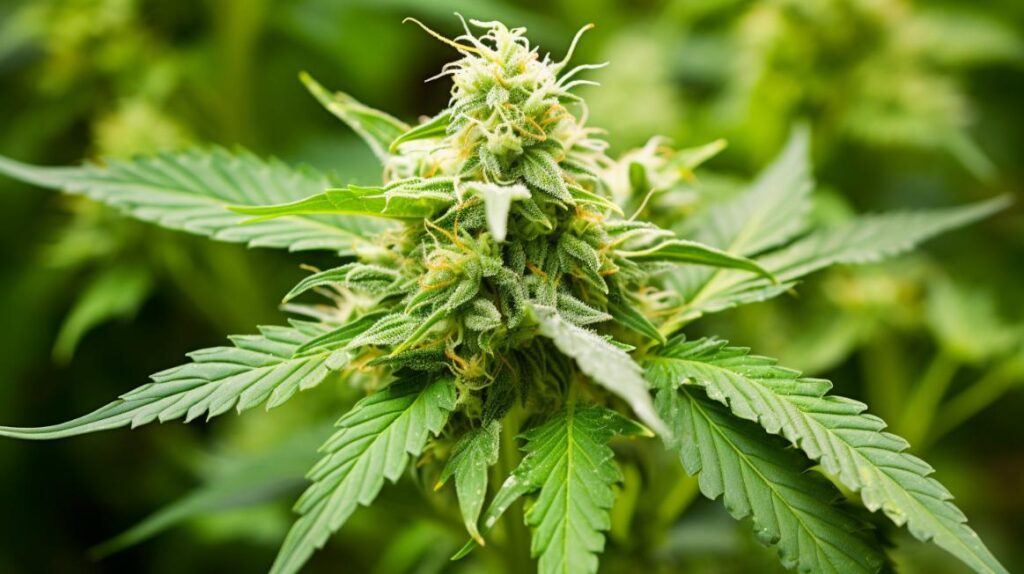
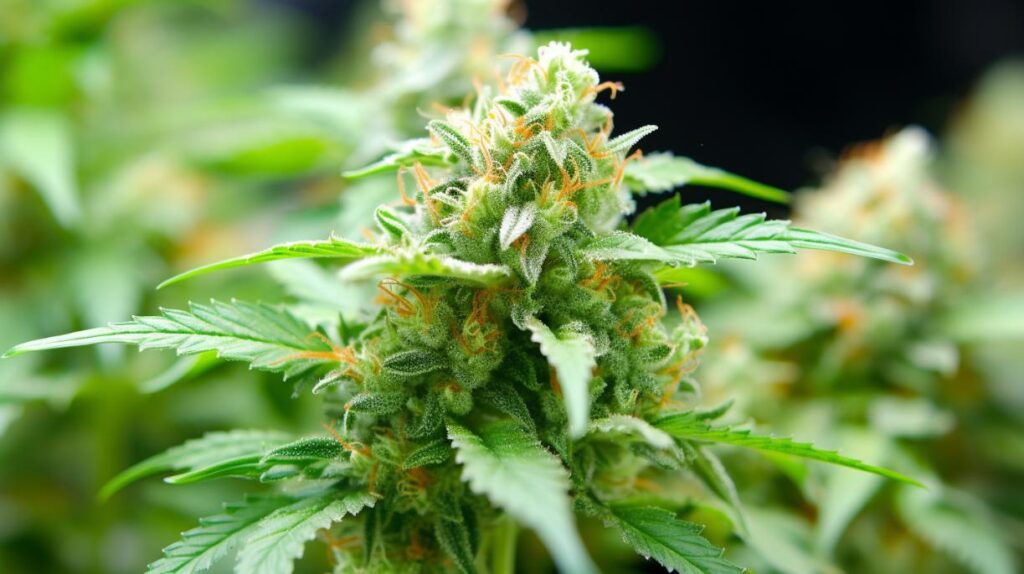
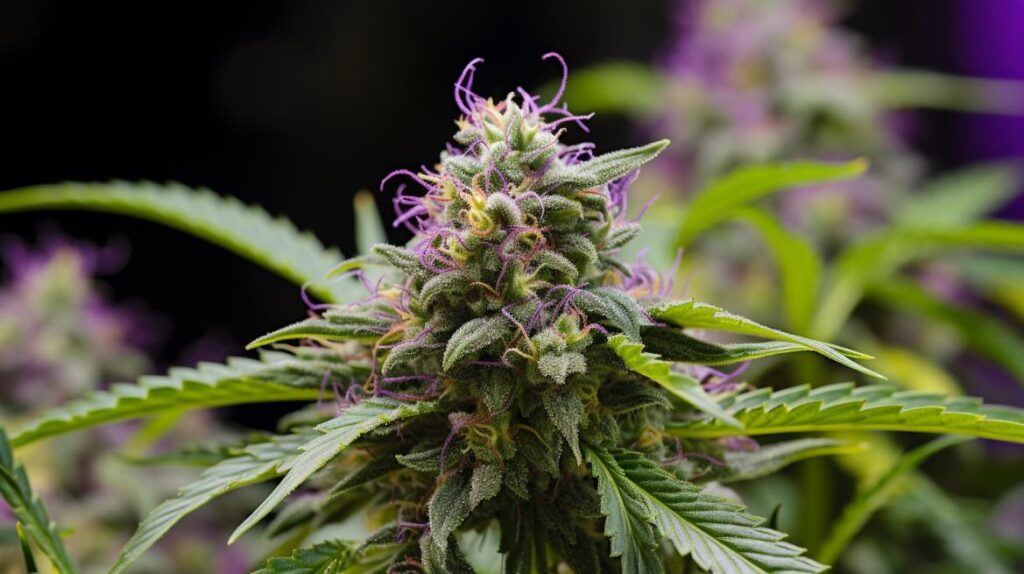
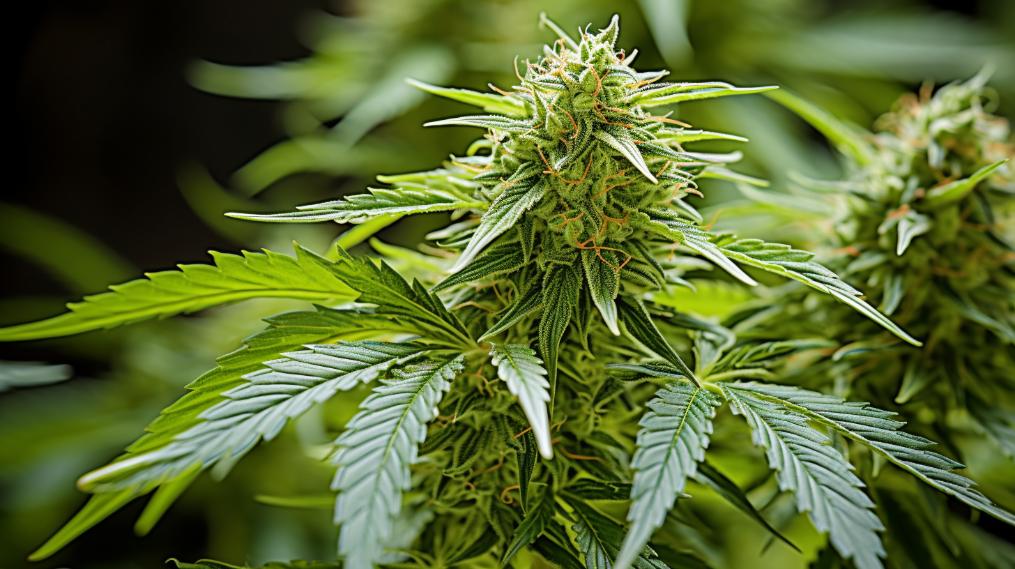
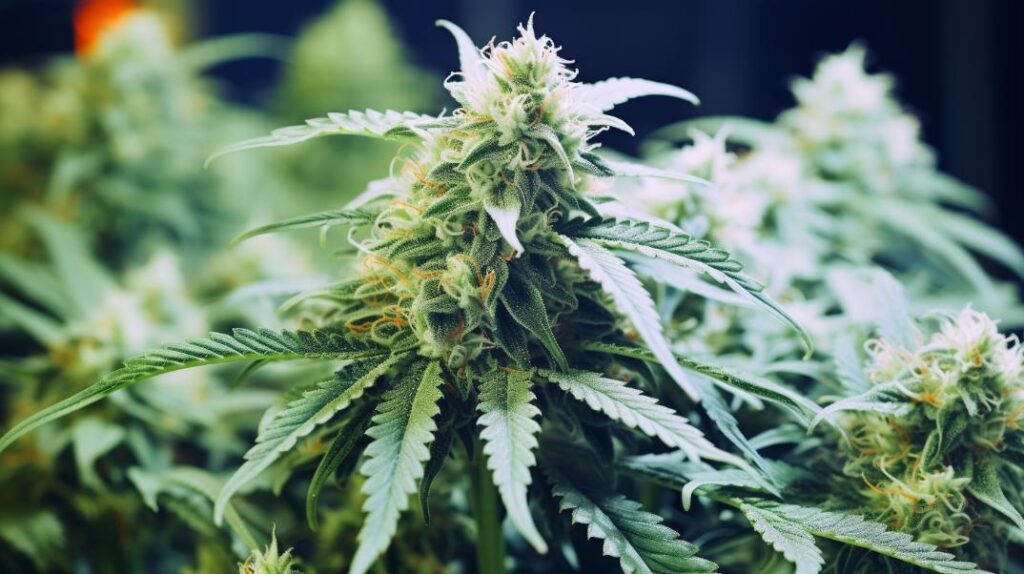

Responses